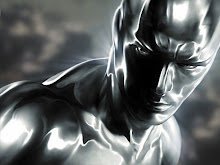The story of Mark Zuckerberg (27 yrs old) would be considered the ultimate success story for those trying to build a business online. Though he is one of the computer geniuses from Harvard University, the fact still remains that Facebook started as a simple idea, and it doesn't require a genius to start a simple idea. Once you have an idea, you can just dig through the resources online, and start building on that idea.
This simple idea of building a platform where people can share and interact has become the world's most popular website --Facebook.
In 2011, there are more people using Facebook than Google. It is also interesting to know that in 2006, Mark got a $1 billion buy-out offer from Yahoo which he turned down. Now, if Facebook were to become an Initial Public Stock Offering (IPO), its value is estimated to be around $35-$50 billion, and Mark himself is now valued at $6.9 billion. Now this is why his story is the ultimate online business success story.
Mark was born in 1984 in White Plains, New York to Karen, a psychiatrist, and Edward Zuckerberg, a dentist. He and his three sisters, Randi, Donna, and Arielle, were brought up in Dobbs Ferry, New York. Zuckerberg was raised Jewish, and under Jewish traditions --he was considered responsible for his actions at the age of 13.
He excelled in high school where he won prizes in science (math, astronomy, and physics) and Classical studies. He could read and write French, Hebrew, Latin, and ancient Greek, and was a fencing star and captain of the fencing team. In college, he was fond of reciting lines from epic poems like the Iliad.
Mark began using computers and writing software when he was just a child. His father taught him Atari BASIC Programming in the 1990s, and later hired software developer David Newman to tutor him privately. Newman calls him a "prodigy," adding that it was "tough to stay ahead of him." Zuckerberg also took a graduate course in programming while he was still in high school. He enjoyed developing computer programs, especially communication tools and games. In one such program, since his father's dental practice was operated from their home, he built a software program he called "ZuckNet," which allowed all the computers between the house and dental office to communicate at each other.
While some kids played computer games. Mark created them. He recalls he had a bunch of friends who were artists. They'd come over, draw stuff, and he’d build a game out of it.
When he was high school, he built a company called Intelligent Media Group and built a music player called the Synapse Media Player that used artificial intelligence to learn the user's listening habits, which was posted to an online company called Slashdot. He received a rating of 3 out of 5 from PC Magazine. Later, Microsoft and AOL tried to purchase Synapse and recruit him, but he chose instead to enroll at Harvard University in September 2002.
He and his friends had books called Face Books, which included the names and pictures of everyone who lived in the student dorms. At first, he built a site and placed two pictures, or pictures of two males and two females. Visitors to the site had to choose who was "hotter" and according to the votes there would be a ranking.
The site went up over a weekend, but by Monday morning the college shut it down because its popularity had overwhelmed Harvard's server and prevented students from accessing the Internet. In addition, many students complained that their photos were being used without permission. Mark apologized publicly, and the student paper ran articles stating that his site was completely improper.
Around the time of Facemash, however, students were requesting that the university develop an internal website that would include similar photos and contact details. According to his roommate Hasit, Mark heard these pleas and decided that if the university won't do something about it, he will, and he would build a site that would be even better than what the university had planned.
Mark launched Facebook from his Harvard dormitory room on February 4, 2004. An earlier inspiration for Facebook may have come from Phillips Exeter Academy, the prep school from which he graduated in 2002. It published its own student directory, “The Photo Address Book,” which students referred to as “The Facebook.” Such photo directories were an important part of the student social experience at many private schools. With them, students were able to list attributes such as their class years, their proximities to friends, and their telephone numbers.
Once at college, Mark’s Facebook started off as just a "Harvard thing" until he decided to spread it to other schools, enlisting the help of roommate Dustin Moskovitz. They first started it at Stanford, Dartmouth, Columbia, New York University, Cornell, Penn, Brown, and Yale, and then at other schools that had social contacts with Harvard.
He then moved to Palo Alto, California, with Moskovitz and some friends. They leased a small house that served as an office. Over the summer, he met Peter Thiel who invested in the company. They got their first office in mid-2004. According to Mark, the group planned to return to Harvard but eventually decided to remain in California. They had already turned down offers by major corporations to buy out Facebook.
In an interview in 2007, Mark explained: “It's not because of the amount of money. For me and my colleagues, the most important thing is that we create an open information flow for people. Having media corporations owned by conglomerates is just not attractive to me.”
It is also interesting to note that a lot of people have claimed ownership to the idea of Facebook. Harvard students -- twins Cameron Winklevoss and Tyler Winklevoss, and Divya Narendra accused Mark of intentionally making them believe he would help them build a social network called HarvardConnection.com (later called ConnectU). It was initially dismissed in a local court, but still in the following years, ended in an out of court settlement at the tune of $65 million in favor of the Winklevoss twins and Divya Narenda.
Tweet
ICF (Insulated Concrete Form) homes now possible in the Philippines
-
If you are from the west US or Canada and wants to move to the Philippines
or build a home or a second home here, your first issue might be our
climate – t...





No comments:
Post a Comment